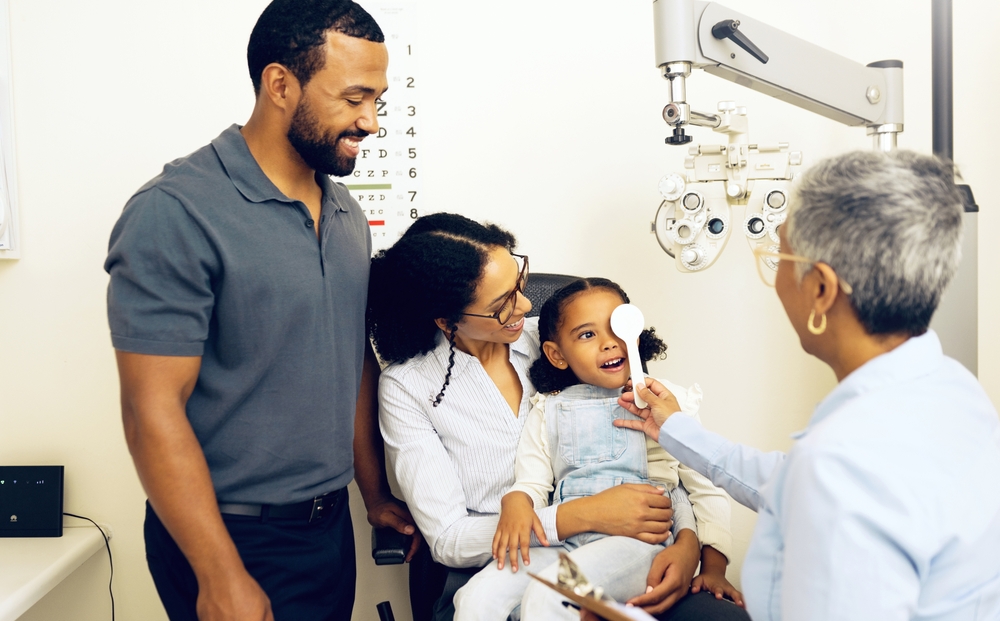
As a parent, you want to ensure your child has the best possible start to the school year. One crucial aspect that is often overlooked is the importance of regular pediatric eye exams. These comprehensive assessments go beyond the basic vision screenings typically conducted at school and can provide a detailed evaluation of your child's visual health.
The Importance of Pediatric Eye Exams for Children
Vision plays a crucial role in a child's development and learning. Undiagnosed vision problems can lead to difficulties in the classroom, behavioral challenges, and even social isolation. By scheduling a comprehensive pediatric eye exam before the start of the school year, you can ensure your child's visual needs are met and they are equipped to thrive academically and socially.
Regular eye exams are especially important during the formative years when visual skills are rapidly developing. Children's eyes are constantly changing, and it's essential to monitor their visual health to identify and address any issues early on. Catching and treating vision problems in their early stages can have a profound impact on your child's educational journey and overall quality of life.
What Does a Pediatric Eye Exam Involve?
A comprehensive pediatric eye exam goes far beyond the basic vision screening typically conducted at school. These exams are performed by a licensed optometrist who specializes in pediatric eye care. During the exam, the doctor will assess a wide range of visual functions, including:
Visual Acuity: This measures your child's ability to see clearly at various distances, including near, intermediate, and far.
Refractive Errors: The exam will check for common refractive errors, such as nearsightedness (myopia), farsightedness (hyperopia), and astigmatism.
Binocular Vision: The doctor will evaluate how your child's eyes work together, looking for any issues with eye teaming, eye tracking, or eye coordination.
Eye Health: A comprehensive eye exam will include a thorough assessment of the internal and external structures of the eyes, checking for any signs of disease or abnormalities.
Developmental Milestones: The pediatric eye exam will also assess your child's visual development and ensure they are meeting important milestones.
The exam may involve various tests and procedures, such as eye drops to dilate the pupils, visual field testing, and color vision assessments. The doctor will take the time to explain the findings and recommendations, ensuring you have a clear understanding of your child's visual health.
Common Eye Conditions That Can Be Detected Through Pediatric Eye Exams
Pediatric eye exams can detect a wide range of vision problems that may impact your child's academic and social development. Some of the most common conditions that can be identified include:
Refractive Errors: Nearsightedness, farsightedness, and astigmatism are the most prevalent refractive errors in children. These can lead to difficulties with reading, writing, and other up-close tasks.
Amblyopia (Lazy Eye): This condition occurs when one eye develops weaker vision than the other, often due to a refractive error or eye misalignment.
Strabismus (Eye Misalignment): Also known as "crossed eyes" or "wandering eye," this condition can cause problems with depth perception and eye coordination.
Convergence Insufficiency: This binocular vision disorder makes it difficult for the eyes to work together when focusing on near objects, leading to eye strain, headaches, and reading difficulties.
Color Vision Deficiencies: Some children may have difficulty distinguishing certain colors, which can impact their ability to interpret visual information in the classroom.
By identifying these conditions early, your child's eye doctor can recommend appropriate treatment options, such as prescription lenses, vision therapy, or other interventions, to ensure your child's visual needs are met.
The Benefits of Early Detection and Treatment for School Success
Addressing vision problems early on can have a profound impact on your child's academic and social success. Refractive errors and binocular vision problems can make it challenging for children to focus on close-up tasks, leading to frustration and poor performance. Undiagnosed vision problems can also contribute to behavioral problems, such as fidgeting or difficulty concentrating, as the child struggles to process visual information.
Additionally, vision issues can impact a child's ability to participate in sports, play with peers, and engage in other social activities, potentially leading to feelings of isolation and low self-esteem.
By scheduling a comprehensive pediatric eye exam before the start of the school year, you can ensure your child's visual needs are addressed, allowing them to reach their full academic and social potential. Early detection and treatment can make a significant difference in your child's overall well-being and success in the classroom.
Book Your Child’s Back-to-School Eye Exam with Family Eye Care Center of Atlanta Today
Prioritizing your child's vision health is a crucial step in setting them up for academic success. Regular pediatric eye exams can identify and address a wide range of vision problems, empowering your child to thrive in the classroom and beyond.
At Family Eye Care Center of Atlanta, we are dedicated to providing comprehensive, personalized care to ensure your child's vision is optimized for success. Visit office in Atlanta, Georgia, or call (404) 905-1400 to schedule your child's appointment and take the first step towards a brighter academic future.










